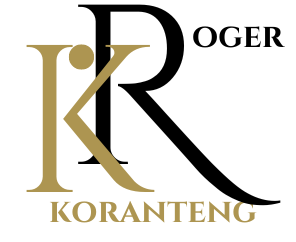Is Emacs Dead? Exploring the Legacy and Relevance of an Iconic Text Editor

In the ever-evolving world of text editors and Integrated Development Environments (IDEs), one might wonder if Emacs, a text editor born in the 1970s, is still alive and kicking or if it has become a relic of the past. Despite the emergence of numerous competitors, Emacs continues to be a powerful tool for many developers. This blog will explore the history, features, and current relevance of Emacs, shedding light on why it remains in use today.
A Brief History of Emacs

Emacs, short for Editor MACroS, was created by Richard Stallman in 1976. It started as a set of macros for the TECO editor and evolved into its own entity, becoming a cornerstone of the Free Software Foundation and the GNU Project. Emacs is known for its extensibility, allowing users to customize and extend its functionality using the Emacs Lisp programming language.
Key Features of Emacs
1. Extensibility:
- Emacs is highly customizable. Users can write Emacs Lisp code to modify existing features or add new ones, creating a personalized editing experience.
2. Modes:
- Emacs supports various modes tailored to different types of text editing, such as programming languages, markup languages, and plain text. Major modes provide language-specific features, while minor modes offer additional functionalities.
3. Built-in Tools:
- Emacs includes a wide array of built-in tools, such as a file manager (Dired), a news reader (Gnus), a mail client (Mu4e), and even games. This makes it a versatile tool that can handle many tasks beyond text editing.
4. Community and Documentation:
- The Emacs community is active and passionate, contributing plugins, extensions, and extensive documentation. This ecosystem ensures that users have access to a wealth of resources for learning and enhancing Emacs.
Emacs in the Modern Era
Despite its age, Emacs remains relevant for several reasons:
1. Flexibility:
- Emacs can be tailored to fit almost any workflow. Whether you're writing code, managing tasks, or editing prose, Emacs can be configured to meet your needs.
2. Longevity:
- Emacs has stood the test of time. Its stability and reliability make it a trusted tool for many developers who value consistency and durability in their software.
3. Integration:
- Emacs can integrate with modern development tools and workflows. For example, packages like Magit offer seamless Git integration, while LSP (Language Server Protocol) support brings modern code intelligence features to Emacs.
4. Cross-Platform Support:
- Emacs runs on virtually any operating system, from Windows and macOS to various Linux distributions and even BSD variants.
5. Community Contributions:
- The active Emacs community continually develops and maintains packages that bring new features and improvements, ensuring that Emacs stays up-to-date with current trends.
Use Cases for Emacs Today
1. Software Development:
- Emacs is still a favorite among many programmers. Its powerful editing capabilities, combined with extensive language support and customizable workflows, make it an excellent choice for software development.
2. Writing and Note-Taking:
- Emacs' Org-mode is renowned for its robust features for organizing tasks, taking notes, and authoring documents. Writers and researchers often use Emacs for its powerful outlining and organizational tools.
3. System Administration:
- System administrators appreciate Emacs for its ability to edit configuration files, manage tasks, and even monitor systems, all within a single interface.
4. Academic Research:
- Emacs is popular in academia for writing papers, managing references, and analyzing data, thanks to packages like AUCTeX for LaTeX editing and ESS for statistical programming.
Conclusion
Emacs may be a decades-old text editor, but its enduring popularity is a testament to its power, flexibility, and adaptability. While newer editors and IDEs have emerged, offering sleek interfaces and modern features, Emacs continues to hold its ground by evolving with the times. For those willing to invest time in learning and customizing it, Emacs offers an unparalleled editing experience that can be tailored to virtually any need. So, is Emacs dead? Absolutely not. And for many, it remains an indispensable tool in their daily workflow.
What's Your Reaction?


































































